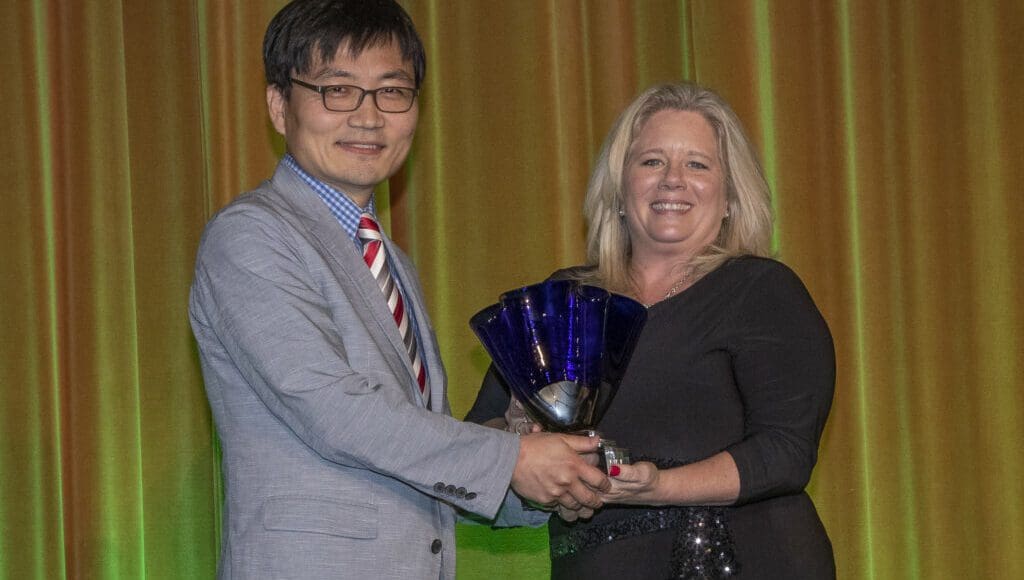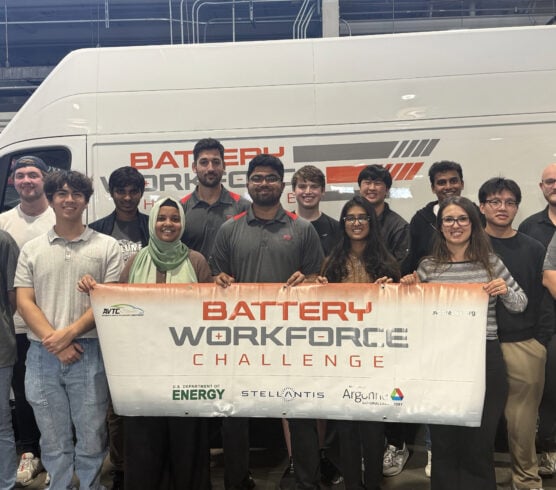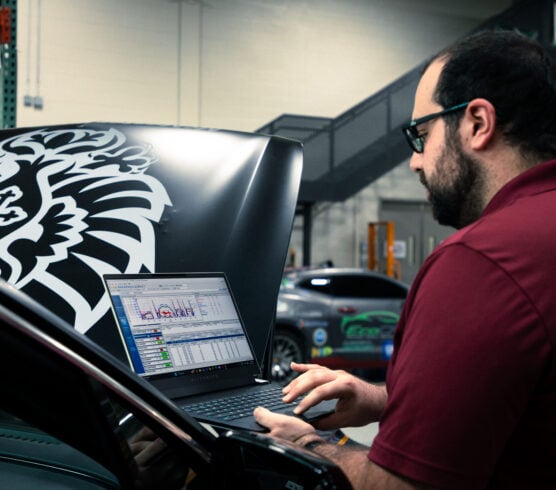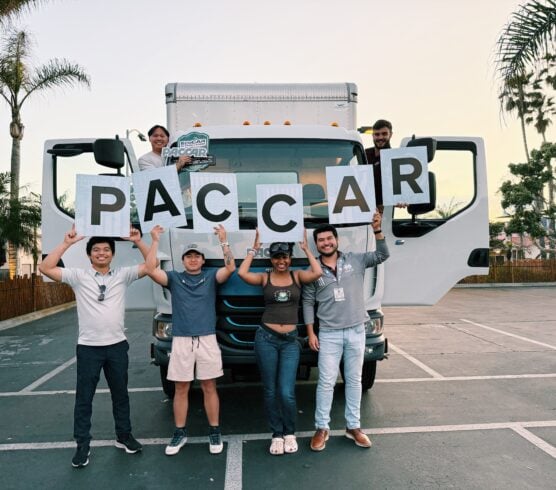Achieving tenure at Tier 1 research universities requires exceeding rigorous standards in teaching and research. Service can also play a vital role in academia, with the potential to connect students to experiential learning activities and the opportunity to play a pivotal role in developing real-world solutions to our nation’s most complex challenges.
Junior faculty’s service expectations are typically tempered to give them more time to focus on their teaching responsibilities, secure funding, perform research, and publish their findings. This generally discourages junior faculty from significant involvement with student competitions and other project-based learning activities.
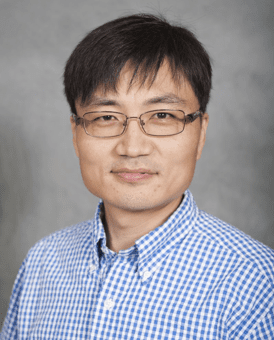 Dr. Hwan-Sik Yoon, associate professor at the University of Alabama, demonstrated that such involvement can actually be an asset to the research and teaching components of tenure evaluation — as long as it is the right program.
Dr. Hwan-Sik Yoon, associate professor at the University of Alabama, demonstrated that such involvement can actually be an asset to the research and teaching components of tenure evaluation — as long as it is the right program.
In addition to his traditional research focus on Connected and Automated Vehicles within the Mechanical Engineering Department, Yoon became the lead CAVs faculty advisor for the University of Alabama EcoCAR team seven years ago. At the time, the project was new to UA, and Yoon was seeking tenure. Department Head of Mechanical Engineering, Dr. Nader Jalili said about Yoon, “His willingness to take on an advisory role in such a substantial student project as EcoCAR before tenure was quite a risk; however, he had the foresight to see the importance of getting our university into the program and our Department, College and the University at large is glad he did. His support for the students involved has been tireless.”
While balancing the responsibilities of EcoCAR, Yoon received tenure in 2018. The UA College of Engineering puts a high emphasis on project-based learning, and Yoon’s support for the program considerably enhanced his teaching portfolio and research as a result.
Charles Karr, Dean of the College of Engineering at UA, said “The University of Alabama’s involvement with the EcoCAR program has been a huge positive. It has provided our students with wonderful opportunities to enhance the quality education they receive in the classroom. I believe that the sort of out-of-classroom experiences that programs like EcoCAR provide are so very valuable to our students.”
He added, “With regard to the tenure process, we still have a focus on teaching, research, and service. I consider a faculty member’s involvement in EcoCAR to be more than service, but also teaching (educating if you will). I also think that Dr. Yoon in particular has benefited from his involvement by making plenty of connections that can help him in his research. He has done a very nice job of maintaining a level of balance with his efforts.”
After Yoon was inspired by EcoCAR activity, he became a leader in Connected and Autonomous Vehicle (CAV) research at UA, and he has collaborated with faculty from Electrical and Computer Engineering, Civil Construction and Environmental Engineering at UA. On most university campuses, CAVs research may not typically be conducted in a Mechanical Engineering Department but Dr. Yoon’s multi-disciplinary collaboration across different departments across the UA campus has proved successful. Multi-disciplinary collaboration is also a cornerstone of EcoCAR. As part of his involvement with the EcoCAR competition, Yoon oversees 14 CAVs students involved with the UA EcoCAR team – making it the third largest CAVs team of the 11 participating universities.
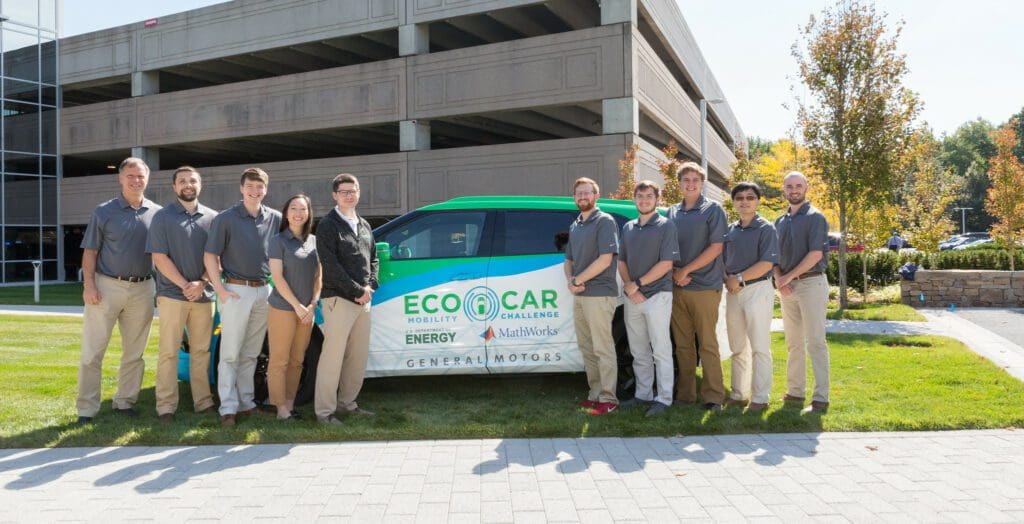
Since being involved with EcoCAR, Dr. Yoon has established three new courses in the Mechanical Engineering Department at UA. “The modeling and simulation materials we received from EcoCAR were really helpful to use in engineering courses,” said Dr. Yoon. “The materials were valuable because they are what automotive manufactures actually use in real vehicles.”
In addition to his EcoCAR involvement, Dr. Yoon received a research grant from the U.S. Department of Energy to develop a sensing system to improve network-wide fuel economy via traffic system optimization. “I applied knowledge I gained through the EcoCAR program on the object detection and tracking in a livestream video as well as sensor fusion, he said.”
Where did his interest in the automotive industry come from? Yoon adds, “I have always been interested in cars since my time in graduate school. My automotive engineering research was mostly based on modeling and simulation – nothing that compared to the scale of the EcoCAR program.”
Dr. Yoon is adored by his students who say he uses his knowledge to educate and inspire them through his own example. In fact, Dr. Yoon was nominated by his colleagues and students, and was the winner of the prestigious 2019 National Science Foundation Outstanding EcoCAR Faculty Advisor Award, earning his team a $10,000 prize to continue their research in CAVs.
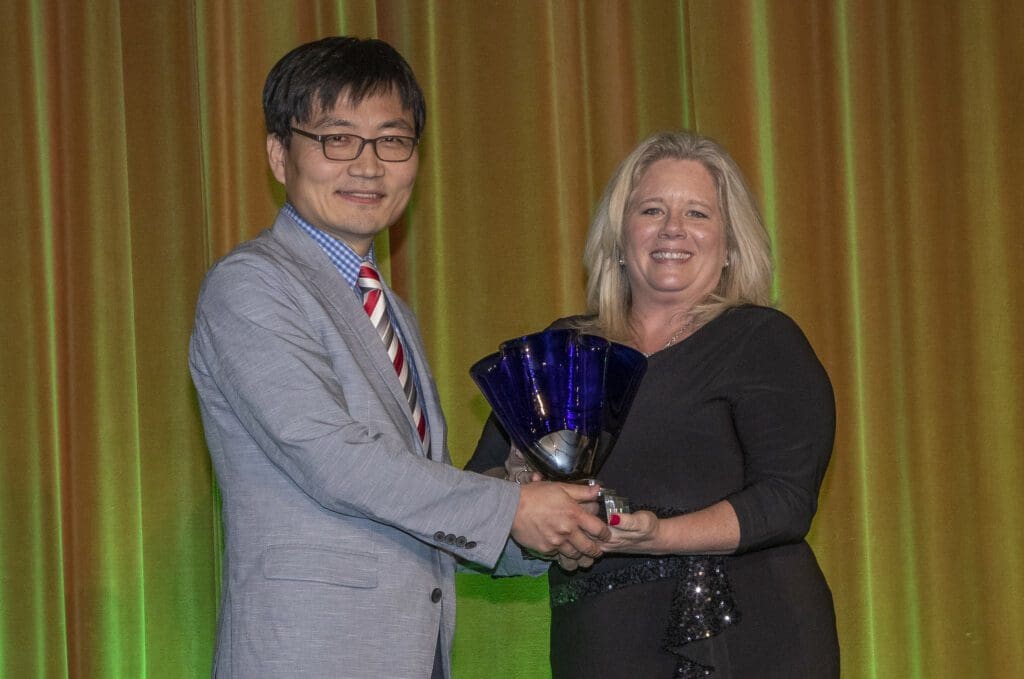
Yoon was onto something by bringing the EcoCAR Mobility Challenge to UA. The project is teaching students skills need for tomorrows workforce through inter-disciplinary and project-based learning.
Yoon said, “The most fulfilling experience is to see our UA students learn valuable practical knowledge that they would not have learned anywhere else and become competent engineers through the EcoCAR program. When I hear that they are doing well in their job after they graduate, I feel very proud of them and rewarded.”
To learn more about Dr. Yoon and EcoCAR go to: EcoCAR Mobility Challenge.
